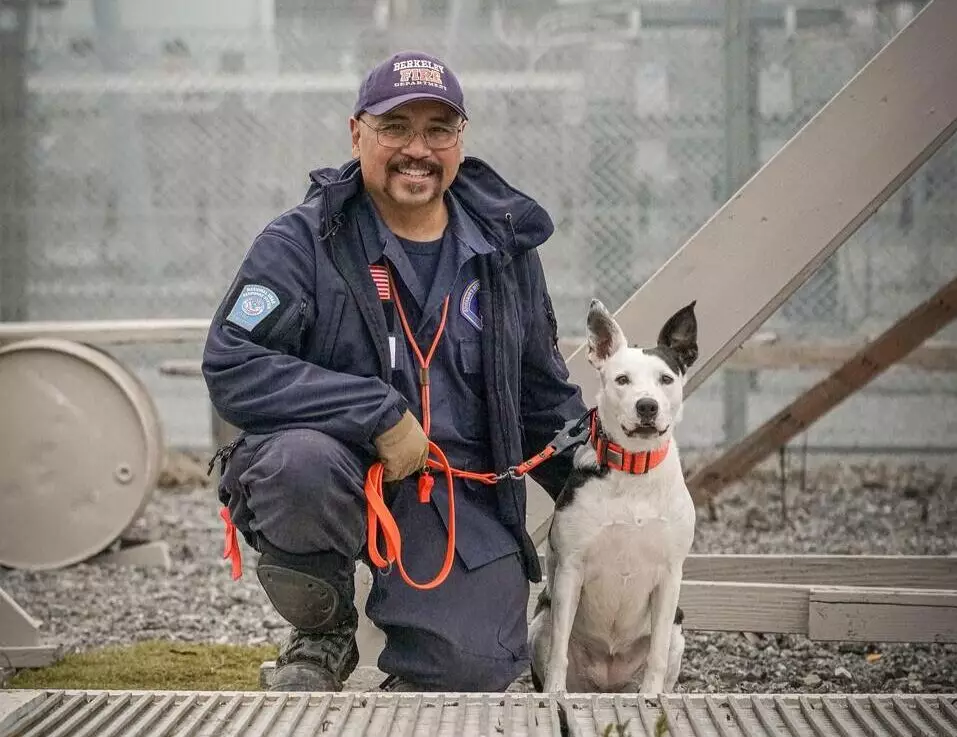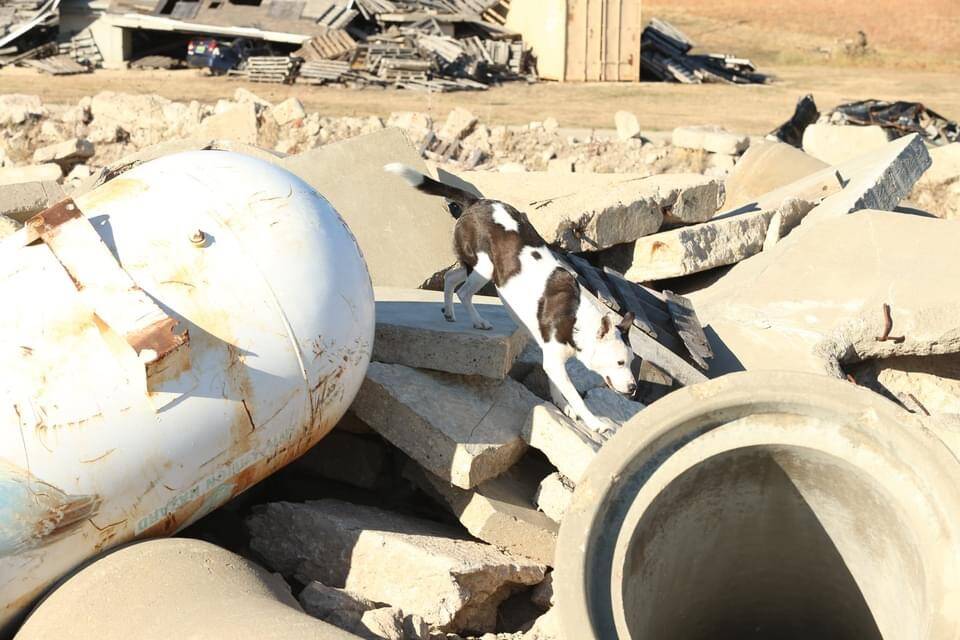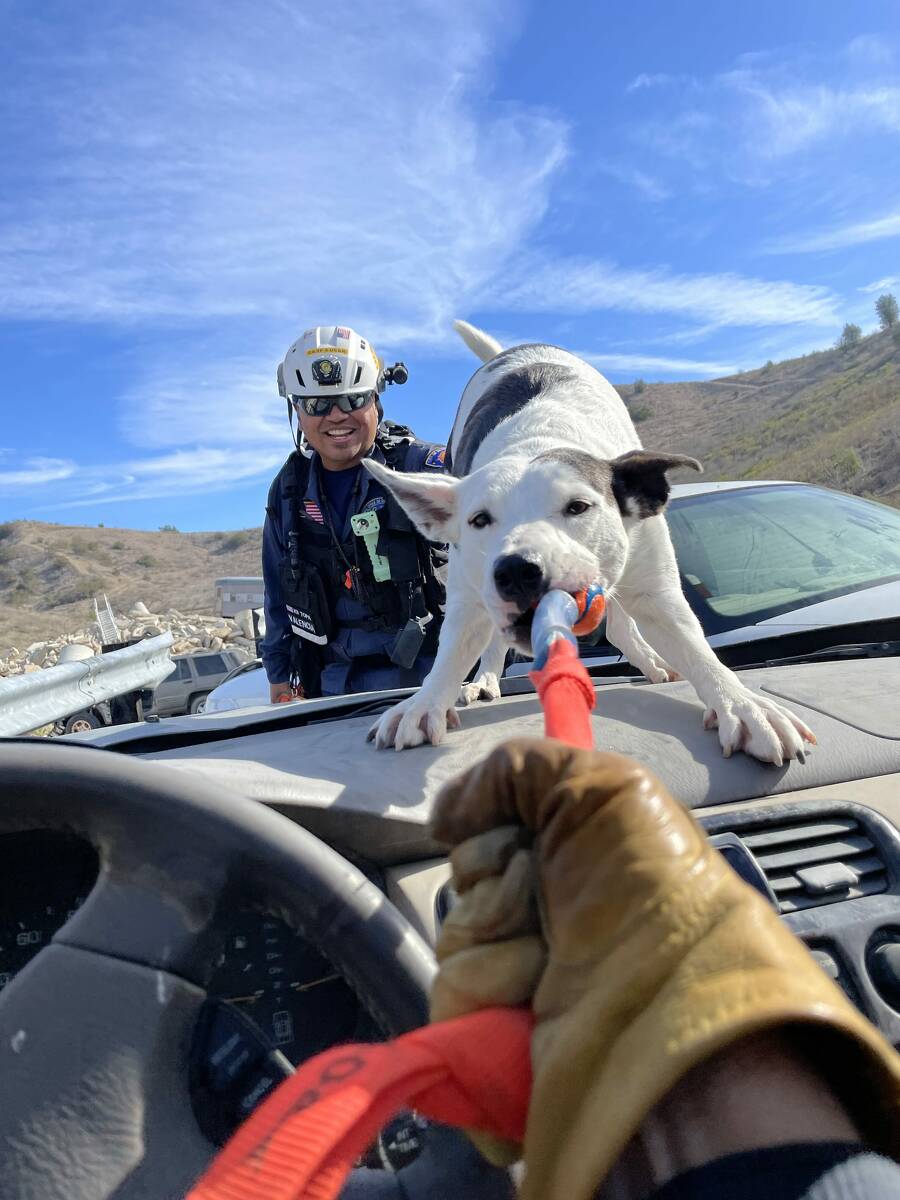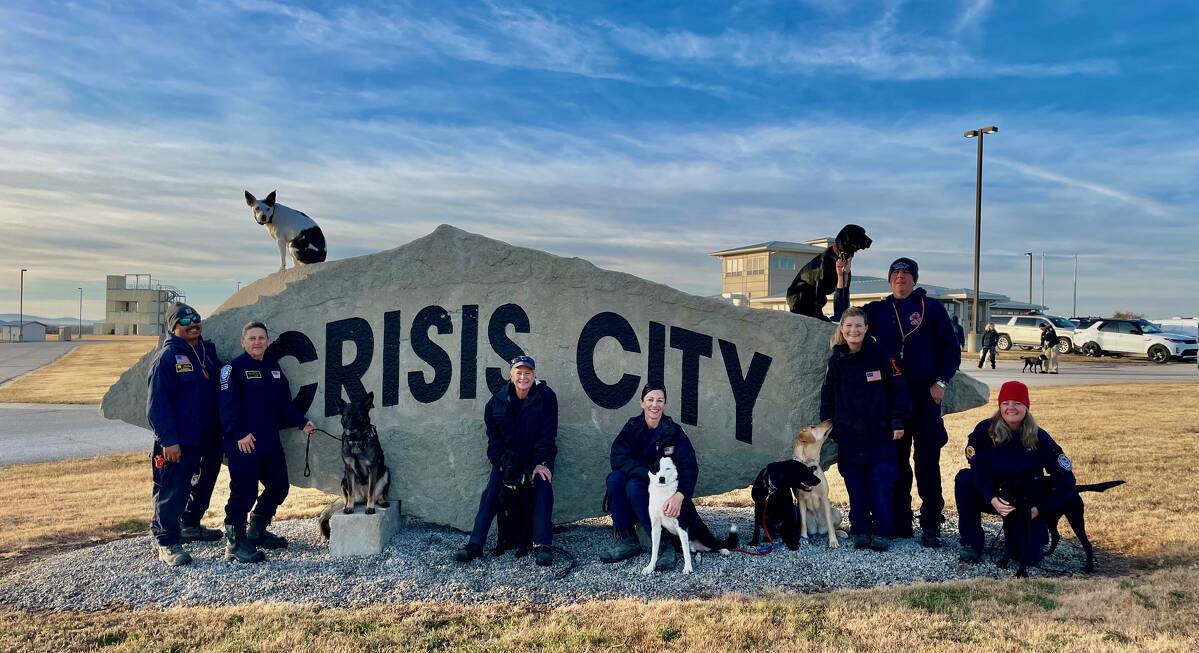ZYRTEC Pet Pawsitivity Walk Challenge
It’s Walk Time
The first time Rudy laid eyes on Topa, he knew instinctively she was his dog. And now, lying in a tunnel in a rubble pile, he hoped Topa felt the same way.
Rudy Valencia first joined the Berkeley Fire Department in 2001, shortly before 9/11. From the other side of the country, he watched the disaster and the rescue efforts. He already knew he was interested in disaster rescue. Immediately the search dog teams caught his eye. The way they were able to weave in and out of the rubble, the communication between dogs and handlers. He was fascinated. It lodged in his head “I’d like to do that someday, to work with a search dog.” Later after working with a first responder who had traveled to the Twin Towers with his search dog, he was even more certain: someday he would be a dog handler, too.
Life, however, intervened. Rudy had young children and pets at home. Handling a search dog was a lot of work—not only was there the constant training on top of his other duties, he would have to be able to deploy at a moment’s notice. He became active in other disaster-recovery work, joining California Task Force 4 out of Oakland in addition to his Fire Department duties. As a rescue specialist, he did technical work and deployed several times to national disasters using technology to find victims. But he never let go of the dream of being a search-dog handler.
In 2018, his kids older, he was granted permission to shadow a search-dog handler for the Task Force, the first step to becoming one himself.
At the same time, Topa was in South Dakota. And life was not good for her. The border collie mix was discovered in a hot car outside a bar with another dog. When police arrived, they learned the dogs had been there for eight hours. In the extreme heat, the other dog had passed away but Topa managed to survive. Her owner was arrested; she went to the shelter. That’s where her luck took a distinct turn for the better. A local dog trainer who scouted for National Disaster Search Dog Foundation spotted her videos on the shelter website. The Foundation trains high-drive shelter dogs as search-and-rescue dogs. They look for smart, active dogs who are highly toy motivated. Topa, her ears standing at attention, willing to do anything for her toy, fit the bill. Despite her prior ordeal, she was tireless, agile, and picked up commands like a champ. She was flown to California to be trained for her new career. She became an expert at sniffing out live victims at a variety of replicated disaster sites.
Which is how, in 2019, Topa and Rudy found themselves in the same rubble pile at the training grounds for the National Search Dog Foundation. Rudy had been approved for a dog and went for the initial training. During the two weeks, the new handlers worked with a variety of dogs. “It was a bit like dating,” Rudy laughs. From the first day he had noticed Topa. With her smaller size, bat ears, and distinctive markings she stood out from the other dogs. He felt an immediate attachment to her.

At the end of the training, the dogs “pick” their new handlers. In a vast rubble pile, the handlers hide and the dog that will be assigned to them will find them. Hiding in the rubble that day, Rudy hoped that it was Topa’s little black nose that would sniff him out. When she stopped at the tunnel that Rudy was hiding in, alerting frantically, it was done. Rudy, his kind face breaking into a huge grin when he tells the story, remembers it well. They were a team.
National Disaster Search Dog Foundation dogs live with their handlers during their career and after their retirement. Topa immediately fit right in with the family and their two other pet dogs. “She’s the smallest dog in the house but she is definitely the boss,” Rudy laughs.
With the pandemic, getting through the team training together to be certified took longer than usual. Rudy and Topa trained as much as possible and, in 2021, were certified as an official search team for California Task Force 4. Always on-call for a disaster, Topa goes to work at the firehouse with Rudy every shift. While her official job is finding live victims, she unofficially serves as a therapy dog and stress relief for the station. When a young girl was harassed returning from school in the neighborhood, she and her elderly caretaker knocked on the firehouse door for help. While law enforcement caught the perpetrator, Topa swung into action comforting and distracting the frightened child—a job she had never been trained for.

Rudy and Topa were deployed to Louisiana in the aftermath of Hurricane Ida, travelling in a caravan with the rest of the task force. Though they wound up not being needed, it was valuable experience of what the future holds for the two of them. As they wait for their next call, the pair appears often in the community, doing demonstrations and spreading the word about their work and disaster preparation. They continue to train constantly, not just in California but in other states as well so Topa can practice in different environments. They’ll soon leave for Hawaii to train there.
“Topa’s contract states she can retire after ten years but some dogs work longer,” Rudy says. “As long as she’s willing to work, I’m right there with her.” In the meantime, Rudy and Topa have a packed “go-bag” that comes with them to work, ready to deploy at a moment’s notice. They also are available to assist law enforcement in searches for endangered missing people or children. When Topa eventually retires, she’ll stay right where she is—as a beloved member of Rudy’s family, keeping the other dogs in line and constantly trying to get someone to play fetch for the rest of her days.
